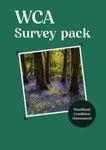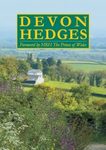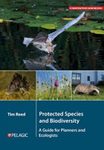By: John A Stanturf(Editor), David Lamb(Editor), Palle Madsen(Editor)
420 pages, 32 colour & 24 b/w illustrations
![Forest Landscape Restoration Forest Landscape Restoration]()
Click to have a closer look
About this book
Contents
Customer reviews
Biography
Related titles
About this book
Restoration ecology, as a scientific discipline, developed from practitioners’ efforts to restore degraded land, with interest also coming from applied ecologists attracted by the potential for restoration projects to apply and/or test developing theories on ecosystem development. Since then, forest landscape restoration (FLR) has emerged as a practical approach to forest restoration particularly in developing countries, where an approach which is both large-scale and focuses on meeting human needs is required.
Yet despite increased investigation into both the biological and social aspects of FLR, there has so far been little success in systematically integrating these two complementary strands. Bringing experts in landscape studies, natural resource management and forest restoration, together with those experienced in conflict management, environmental economics and urban studies, this book bridges that gap to define the nature and potential of FLR as a truly multidisciplinary approach to a global environmental problem.
The book will provide a valuable reference to graduate students and researchers interested in ecological restoration, forest ecology and management, as well as to professionals in environmental restoration, natural resource management, conservation, and environmental policy.
Contents
I. Introduction
1. What is Forest Landscape Restoration?
II. Natural Science Perspectives
2. What Can Landscape Ecology Contribute to Forest Landscape Restoration?
3. Landscape Management
4. Hydrologic Connectivity of Landscapes and Implications for Forest Restoration
5. Connecting Landscape Fragments Through Riparian Zones
6. Understanding Landscapes through Spatial Modeling
III. Social Science Perspectives
7. Forest Landscape Restoration Decision-Making and Conflict Management: Applying Discourse-Based Approaches
8. Alternative Approaches to Urban Natural Areas Restoration: Integrating Social and Ecological Goals
9. Urban Forest Landscape Restoration - Applying Forest Development Types in Design and Planning
10 Watershed-Scale Adaptive Management: A Social Science Perspective
11. The Economics of Restoration
12, Wild Ennerdale: A Cultural Landscape
IV. Integrated Perspectives
13. The Role of Forest Landscape Restoration in Supporting a Transition Towards More Sustainable Coastal Development
14. Broad-Scale Restoration of Landscape Function With Timber, Carbon and Water Investment
15. Challenging a Paradigm: Toward Integrating Indigenous Species into Tropical Plantation Forestry
16. Forest Landscape Restoration: Restoring What and for Whom?
Customer Reviews
Biography
By: John A Stanturf(Editor), David Lamb(Editor), Palle Madsen(Editor)
420 pages, 32 colour & 24 b/w illustrations














































